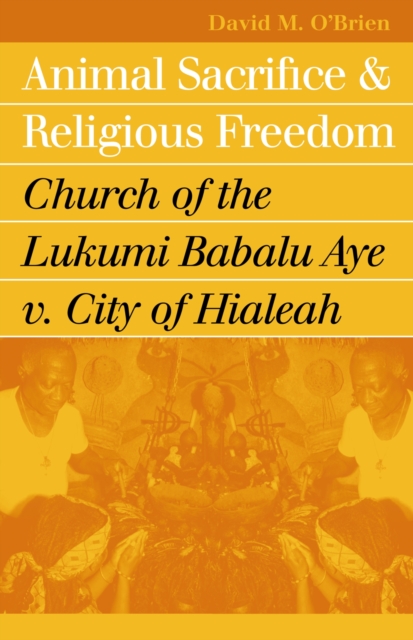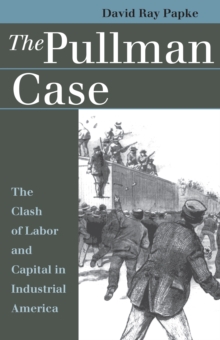
Animal Sacrifice and Religious Freedom : Church of the Lukumi Babalu Aye v. City of Hialeah Paperback / softback
by David M. O'Brien
Part of the Landmark Law Cases and American Society series
Paperback / softback
Description
The Santeria religion of Cuba - the Way of the Saints - mixes West African Yoruba culture with Catholicism.
Similar to Haitian voodoo, Santeria has long practiced animal sacrifice in certain rites.
But when Cuban immigrants brought those rituals to Florida, local authorities were suddenly confronted with a controversial situation of the regulation of public health and morality against religious freedom.
After Ernesto Pichardo established a Santeria church in Hialeah in the 1980s, the city of Hialeah responded by passing ordinances banning ritual animal sacrifice.
Although on the surface those ordinances seemed general in intent, they were clearly aimed at Pichardo's church.
When Pichardo subsequently sued the city, a federal court ruled in the latter's favor, in effect privileging the regulation of public health and morality over the church's free exercise of its religion.
The U.S. Supreme Court heard Pichardo's appeal in 1993 and unanimously decided that the city had overstepped its bounds in targeting this particular religious group; however, the court was sharply divided regarding the basis of its decision.
Information
-
Available to Order - This title is available to order, with delivery expected within 2 weeks
- Format:Paperback / softback
- Pages:208 pages
- Publisher:University Press of Kansas
- Publication Date:10/04/2004
- Category:
- ISBN:9780700613038
Other Formats
- Hardback from £42.95
Information
-
Available to Order - This title is available to order, with delivery expected within 2 weeks
- Format:Paperback / softback
- Pages:208 pages
- Publisher:University Press of Kansas
- Publication Date:10/04/2004
- Category:
- ISBN:9780700613038










